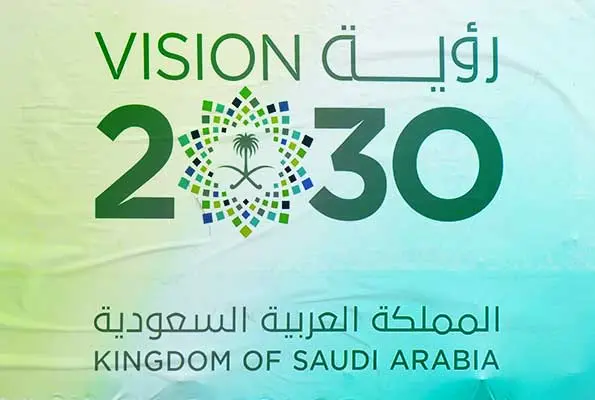The hotel industry in Saudi Arabia is expected to grow at a high rate, with a Compound Annual Growth Rate (CAGR) of 12.23% from 2023 to 2030. The sector is poised for significant transformation. The innovative ‘Vision 2030’ project, which has acted as a catalyst for significant tourist initiatives and economic reforms, is the driving reason behind this rise.
In addition to providing access to international travel, this move has greatly increased the number of tourists visiting places like Riyadh, Jeddah, and Mecca. These cities greatly contribute to the rising demand for lodging because of their rich cultural past, historical landmarks, and standing as important business centres.
Saudi Arabia’s lenient visa regulations have made the country more welcoming to visitors from around the world, which has increased demand for hotels. Significant occurrences and movements, such as the Red Sea Project and NEOM City, have drawn attention from across the globe, requiring first-rate lodging to satisfy the changing requirements of various traveller demographics.
The hotel industry is more vibrant during the Hajj and Umrah seasons because of the religious significance of Mecca and Medina for Muslims. To accommodate a range of tastes, the market has responded to these dynamics by embracing alternative accommodation options like boutique hotels, eco-friendly motels, and glamping locations.
To create a favourable economic environment for investors and hotel operators, government support is essential. Along with significant government investments in road networks, high-speed rail, and airports, financial incentives and loosened rules improve connectivity, promoting travel and supporting hotel stays throughout various regions.
The Saudi hotel market is expected to increase significantly, with an estimated market value of USD 62.57 billion by 2030. The hotel business is experiencing growth due to the integration of digital technology into its operations. These technologies include online booking systems and personalized guest experiences, which improve convenience and draw in tech-savvy tourists.
Guy Hutchinson, president and CEO of hospitality giant Rotana, told Arab News that “the hotel business is clearly primed for faster expansion and the area is now leading the travel and hospitality sector globally.”
In Saudi Arabia, Rotana is developing seven hotels, including five brand-new establishments in Riyadh that are now under negotiation. Over the next four years, these buildings will nearly quadruple the number of rooms the company operates in the Kingdom to 6,000.
“Today, we are seeing constant infrastructure works taking place at full speed in order to satisfy the increased demand with more hotel groups expanding their footprint around the Kingdom,” continued Hutchinson.
High-end hotels in Saudi Arabia are reinventing themselves as stylish retreats with cutting-edge interiors, individualized services, and affordable rates as the country’s hospitality industry experiences a radical change.
Travellers may instantly access a wide variety of lodging options thanks to online booking systems, which are predicted to keep growing in the Saudi Arabian hotel sector by utilizing technology improvements.
The Next Step
It is evident from talking to influential people in the international hotel business that the Kingdom’s tourism industry will only grow.
Hilton’s Middle East and North Africa (MENA) Managing Director of Development, Amir Lababedi, told Arab News that the hotel giant is eager to open more locations in the Kingdom because of the opportunities being created.
“As we seek to increase our portfolio to more than 75 hotels in the Kingdom in the next years, we’re thrilled about the future of Saudi Arabia as it embarks on its ambition to become a global tourism destination,” he added.
According to executives from Accor and Wyndham Hotels & Resorts, who are both major players in the ‘Vision 2030’ program, the company is planning to accelerate its expansion plans in the Kingdom.
“The Kingdom is not only investing in the infrastructure to meet the demand for hotel accommodation but is also working on wider initiatives that will have a direct impact on the hospitality industry and attract local, regional, and international travellers,” Marriott International’s Walia highlighted this aspect of the hospitality environment.
“One of the major areas that the nation has made substantial adjustments to is access,” he continued. The Kingdom’s plans for airport development and expansion will be crucial in facilitating travel to important cities and locations.
“The recent addition of Riyadh Air, another national airline, will be crucial in growing the nation’s network and access to international destinations,” the official noted further.
Walia continued by stating that the current immigration and visa laws of the Kingdom will be crucial in attracting more visitors to the nation.
“All of these elements will assist and further strengthen the hospitality business in the country,” he continued.
Conclusion
Ambitious initiatives, cultural attractions, and strong government support are propelling Saudi Arabia’s hotel business toward a trajectory of healthy expansion. The Kingdom’s dynamic scenery and cutting-edge technological advancements position it as a popular travel destination for people all over the world.



